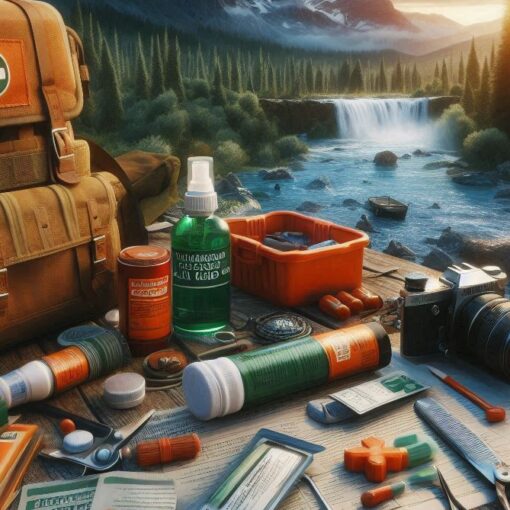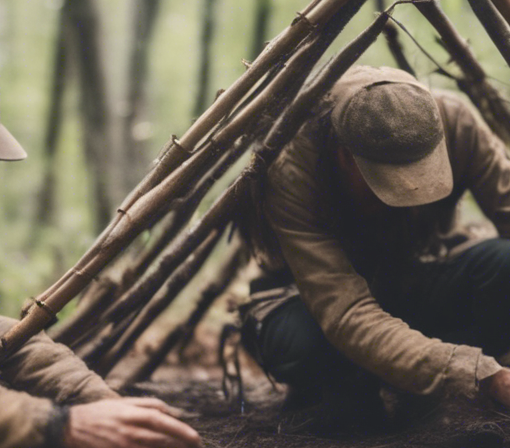 So, you want to learn the basics of surviving in the wild, huh? Good call. Whether you’re prepping for a weekend camping trip or just want to be ready in case your GPS decides to betray you, it’s smart to know a few tricks. Let’s dive into the six core survival skills that’ll keep you alive when Mother Nature decides to throw a curveball.
So, you want to learn the basics of surviving in the wild, huh? Good call. Whether you’re prepping for a weekend camping trip or just want to be ready in case your GPS decides to betray you, it’s smart to know a few tricks. Let’s dive into the six core survival skills that’ll keep you alive when Mother Nature decides to throw a curveball.
1. Your Attitude: It’s All in Your Head
First things first—your attitude can make or break your survival. Seriously, your mindset might just be the difference between a good story to tell later and, well, no story at all. Ever heard of “The Rule of Threes”? It’s like the survivalist’s cheat sheet:
You can last 3 minutes without air.
You’ll survive 3 hours in extreme weather without shelter.
You’ve got 3 days before lack of water becomes a big issue.
And food? You can hold out for about 3 weeks before it’s game over.
See how shelter and water top the list? That’s your priority, and it’s all about staying calm, collected, and focused.
When you find yourself in a sticky situation, remember the acronym SPEAR: Stop, Plan, Execute, Assess, and Re-evaluate. It’s like hitting pause before you freak out, coming up with a plan, and then tackling things one step at a time. Trust me, it works way better than panicking and running in circles.
2. Shelter: Your First Line of Defense
 So, you’re out in the wild, and the weather decides to do its worst. Shelter is your best friend here. Most folks in survival situations run into trouble because they don’t have a decent place to crash. And let’s be real—hypothermia is not something you want to mess with.
So, you’re out in the wild, and the weather decides to do its worst. Shelter is your best friend here. Most folks in survival situations run into trouble because they don’t have a decent place to crash. And let’s be real—hypothermia is not something you want to mess with.
When building your shelter, think about these four things:
Location: Find a spot that’s safe and close to materials.
Insulation: Keep the cold, wind, and rain out. The ground’s not your friend here, so insulate yourself from it.
Heat Source: Use your body heat or, better yet, get a fire going.
Size: Are you on your own or with a group? That’ll determine how big your shelter needs to be.
Caves, hollow logs, or even a makeshift debris hut can be lifesavers. If you’re looking for a go-to, the debris hut is pretty much the Swiss Army knife of shelters—works in most places, and it’s not too hard to put together. You might want to learn how to make one before you actually need it.
3. Water: Liquid Gold
Water is your best friend in the wild—seriously, it’s more important than food. Your body’s made up of about 78% water, so staying hydrated isn’t just a good idea; it’s essential.
A gallon a day is the magic number, but clean water can be hard to find. Look for springs, streams, or collect morning dew if you’re really in a pinch.
If you’ve got the gear, filters and chemical treatments work wonders, but if not, boiling is your best bet. Bring that water to a rolling boil for a few minutes, and you’ll kill off most of the nasty stuff lurking in there.
4. Fire: Your Multi-Tool
Fire’s not just for s’mores. It’s your source of heat, your stove, and even your morale booster. Having the skills to start a fire can make all the difference when things get rough.
Pack a few fire-starting tools, like lighters, matches, or flint and steel. Practice making a fire in different conditions, too.
If you’re ever stuck without modern tools, learn how to do it the old-school way—with friction. Bow drills, hand drills, and fire plows are the stuff of legends, but they work, and they could save your bacon someday.
5. Food: Don’t Panic Yet
Food might seem like a big deal, but you’ve got some time before hunger becomes your enemy. Remember the “Rule of Threes”—three weeks is a long time. But let’s be honest, going that long without eating isn’t going to be fun.
Luckily, nature’s got a buffet if you know where to look. Wild plants, insects, and small game can keep you going. Just make sure you know what you’re munching on.
Some plants are sneaky and have poisonous look-alikes, so proper identification is key. And hey, if you’re stuck in a swamp, cattails are like the survivalist’s supermarket—roots, shoots, and all.
6. Nature Skills: Be a Wilderness Whisperer
Knowing your way around nature is like having a secret superpower. Beyond the basics, the more you understand about the natural world, the better you’ll fare. Learn to track animals, recognize medicinal plants, and understand the landscape. It’s what kept our ancestors alive, and it can do the same for you.
If you’re serious about getting good at this, start with some field guides for your area. Get to know the plants and animals around you, and how they all fit together. The more you learn, the more confident you’ll be when you’re out there.
There you have it—the basics of survival, all laid out and ready to go. With the right attitude, some know-how, and a bit of practice, you’ll be ready to handle whatever the wilderness throws your way. And who knows, maybe you’ll even enjoy the adventure. After all, it’s better to be the one telling the survival story than the one who didn’t make it out to tell the tale.




